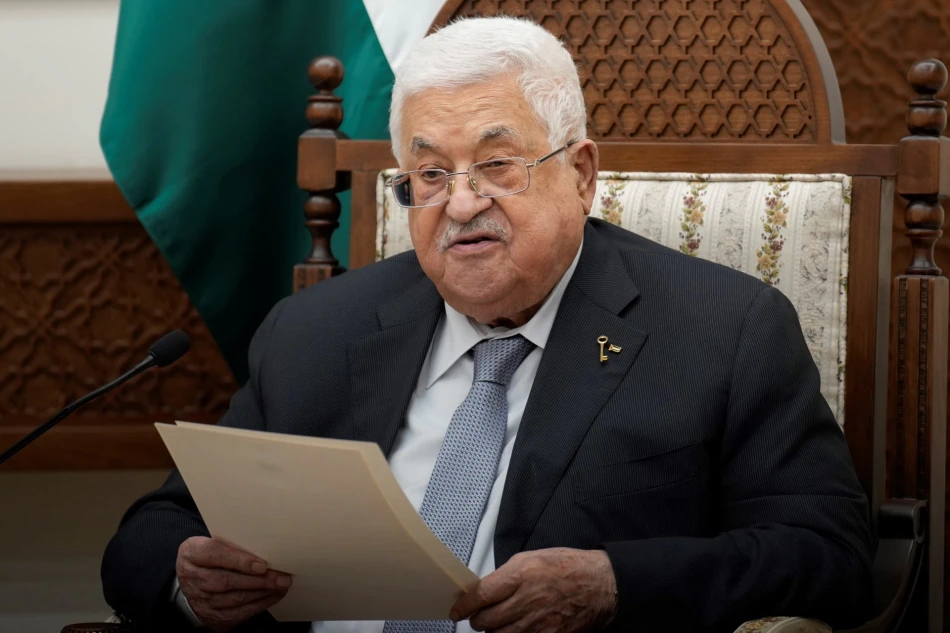
Palestinian Authority President Abbas Appoints Deputy to Temporarily Lead Amid Vacancy
Palestinian President Mahmoud Abbas issued a constitutional declaration establishing a clear succession plan for the Palestinian Authority. If the president's position becomes vacant while the Legislative Council isn't functioning, the deputy head of the PLO Executive Committee would serve as interim president for up to 90 days, during which new elections must be held.
The declaration addresses a critical gap in Palestinian governance. Abbas, who is 89 years old, has led the Palestinian Authority since 2005, but the Palestinian Legislative Council hasn't functioned since 2007 when Hamas took control of Gaza. This created uncertainty about what would happen if the presidency became vacant.
Under the new rules, the deputy head of the Palestine Liberation Organization's Executive Committee would step in as temporary leader. The interim president would have a maximum of 90 days to organize "free and direct elections" for a new president, following Palestinian election law. If elections can't be held within that timeframe due to extraordinary circumstances, the Palestinian Central Council can extend the period once.
The declaration replaces an earlier constitutional announcement from 2024, though the Palestinian news agency didn't specify what changes were made or why the revision was necessary.
Abbas framed the move as essential for protecting Palestinian political institutions during what he called "this delicate stage in the history of the homeland and the Palestinian cause." He emphasized the importance of maintaining constitutional continuity and ensuring the separation of powers.
The timing is significant. Palestinians face mounting pressure from the ongoing war in Gaza, Israeli settlement expansion in the West Bank, and internal political divisions. A clear succession mechanism could help prevent a power vacuum that might further destabilize Palestinian governance.
But here's the challenge: holding elections in Palestinian territories remains complicated. The West Bank is under Israeli military occupation, Gaza is controlled by Hamas, and previous attempts to organize elections have failed due to political disagreements and security concerns.
The declaration signals Abbas's recognition that institutional continuity matters more than individual leadership. For international partners who work with the Palestinian Authority on aid, security cooperation, and diplomatic initiatives, having a clear succession process reduces uncertainty about future relationships.
The move also reflects broader questions about Palestinian political renewal. Abbas has faced criticism for staying in power well beyond his original four-year term, which ended in 2009. This constitutional framework at least establishes a pathway for leadership transition through elections rather than appointment or internal power struggles.
Most Viewed News

 Sara Khaled
Sara Khaled






